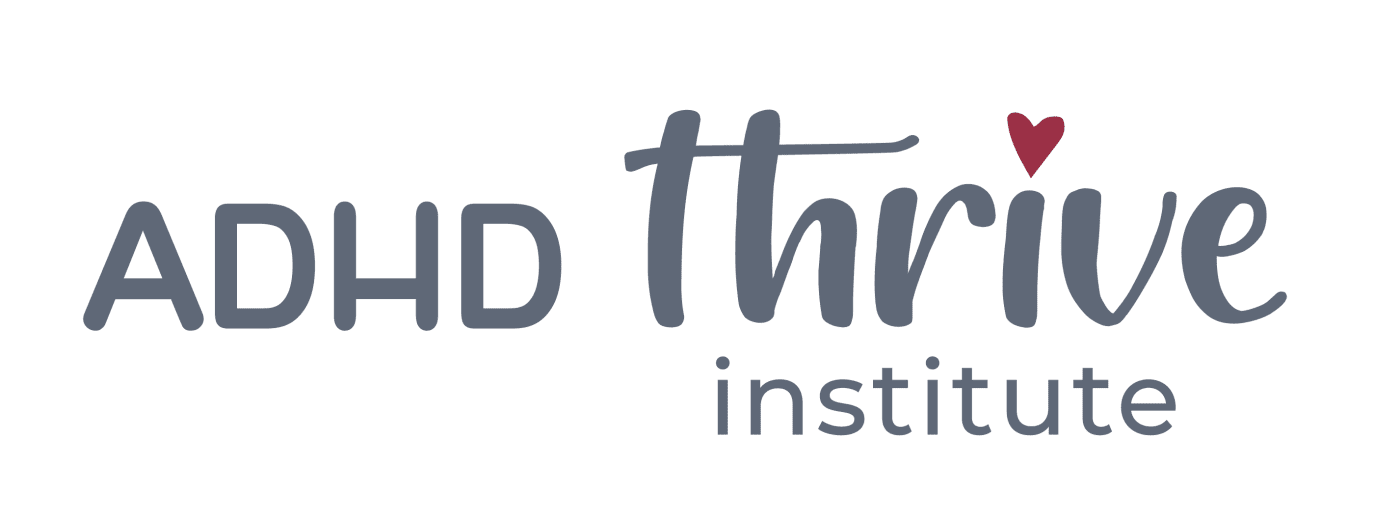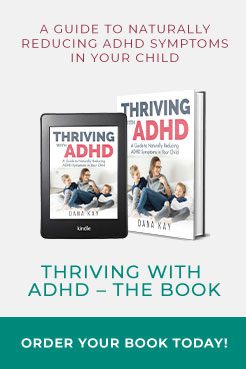If your child has ADHD, you already know how hard some days can be — the constant motion, the meltdowns, the struggle to focus. You’ve probably tried everything: routines, therapy, maybe even diet changes. But here’s something many parents don’t realize: low Vitamin D could be making things worse.
Research shows that kids with ADHD are far more likely to have a Vitamin D deficiency than their peers who don’t have ADHD. This is important, because other studies (like this one) have found that this one Vitamin plays a vital role in the proper functioning of the central nervous system and mental health.
As a result, supplementation with Vitamin D is a common strategy used by many practitioners and families alike, and it’s one I recommend often to families of children with ADHD that I work with.
Why Vitamin D Deficiency Is So Common in Kids Today
Vitamin D is sometimes called the “Sunshine Vitamin” because your body makes it when your skin is exposed to sunlight.
But unfortunately, most kids today don’t get enough sun. Between school hours, screen time, and sunscreen, they’re often indoors — or covered up — during prime Vitamin D hours.
In fact, many children are STILL deficient in Vitamin D even during the summer months!
There are a few reasons for this, but I think it comes down to the following:
☀️Many people have insufficient levels because they live in places where sunlight is limited (especially during the winter months), or because they have limited sun exposure due to being inside much of the time. Children are spending more time indoors on screens than ever before, and when they’re not outside, they’re not getting those rays that produce Vitamin D.
☀️People with darker skin tend to have lower blood levels of Vitamin D because the pigment (melanin) acts like a shade, reducing production of Vitamin D.
☀️The overuse of sunscreen can also block the skin’s Vitamin D receptors, leading to the same outcome. Sunscreens (even nontoxic ones) block UVB rays that are necessary for Vitamin D synthesis in the skin.
☀️ Some children (and adults) have trouble absorbing or converting Vitamin D efficiently.
☀️To add to this, only a few foods are naturally abundant in this fat-soluble Vitamin so getting enough through food alone can be a challenge.

Examples of such foods include sardines, cod liver oil, beef liver, eggs, mushrooms, and caviar, but let’s be honest, that’s not exactly a kid-friendly menu!
So between limited sun and limited food options, many children, especially those with ADHD, end up with a Vitamin D deficiency.
That’s why I often recommend supplementing with high-quality Vitamin D like Shine Essentials, especially for kids with ADHD.
It takes the guesswork out of wondering whether your child is getting enough Vitamin D.
Limited-Time BOGO Offer on Shine Essentials: My Favorite Vitamin D Supplement
From September 1 to September 17, 2025, you can Buy One Shine Essentials, Get One Free! Just use the code SHINEBOGO at checkout when you have added 2 bottles to your cart.
Take advantage of this limited time offer here!
Does Vitamin D Really Help ADHD? Here’s What the Research Says
The short answer is yes, it can, but it depends on how it’s used.
In a 2021 clinical trial, children with ADHD were given Vitamin D and magnesium supplements for 8 weeks. The children receiving the supplements showed major improvements in behavior, focus, and emotional regulation compared to those who didn’t get the supplements.
Low Vitamin D has been linked to higher rates of:
- Depression
- Anxiety
- Cognitive decline
That’s why experts like Dr. James Greenblatt stress that mental health care must include nutrient screening, especially for kids.
Vitamin D Supplement vs. Sunlight: Which One Is Better?
Getting Vitamin D naturally from the sun is ideal, but not always realistic. As mentioned above, cloudy winters, darker skin, and lifestyle all get in the way.
So, supplements are often the best solution to guarantee your child is getting enough.
But not all supplements are created equal.
There are two main forms of Vitamin D.
- Vitamin D2 (ergocalciferol) – plant-based and less bioavailable
- Vitamin D3 (cholecalciferol) – the form your body makes from sunlight
Both types of Vitamin D are essential for maintaining healthy bones and teeth, as well as supporting immune function and muscle health. The body can absorb and utilize both forms, but Vitamin D3 is typically the preferred form because it’s more effective and stays in the system longer.
The Truth About Vitamin D Supplementation
While supplementing with Vitamin D can be a game-changer, there’s a catch: it has to be done the right way.
When the body uses Vitamin D to build bones, it activates bone-forming cells. But those cells need Vitamin K2 to turn into actual bone. Without K2, the body pulls it from other tissues, and that can lead to calcium buildup in arteries and soft tissue.
In short:
- Vitamin D without K2 = potential heart and bone problems
- Vitamin D with K2 = safer, more effective supplementation
Unfortunately, most over-the-counter Vitamin D products don’t include K2. That’s a big mistake, especially for growing kids.

Why We Recommend Shine Essentials for Kids with ADHD
After years of working with ADHD families, we recommend a supplement that combines Vitamin D3 with K2 (and leaves out the fluff).
👉 Shine Essentials is our go-to.
It includes:
- Vitamin D3 – The most absorbable form
- Vitamin K2 – Supports bone and cardiovascular health
- No unnecessary fillers or inactive ingredients
This combo helps ensure that your child’s body uses the supplement safely and effectively, without creating new problems.
BOGO Free Shine Essentials!!
Now is the perfect time to stock up on Shine Essentials!
From September 1 to September 17, 2025, you can Buy One Shine Essentials, Get One Free!
Just use the code SHINEBOGO at checkout when you have added 2 bottles to your cart.
Take advantage of this limited time offer here!
Where to Find Vitamin D Naturally
If you’re read any of my other articles, you know that I always say that supplements are helpful, but food is always the foundation. Unfortunately, Vitamin D-rich foods aren’t ones that are typically on the menu for most families. That being said, you could bring in a couple every now and again and introduce your kids to these Vitamin D-rich foods!
- Eggs (especially the yolk)
- Mushrooms
- Salmon
- Mackerel
- Sardines
Try a family food challenge with one of these new foods, where everyone in the family tried the new food, even if only a lick or a bite! Even small improvements in diet can make a big difference over time.
How to Know If Your Child Needs a Supplement
You can’t always spot Vitamin D deficiency just by looking. But some signs include:
- Frequent illness
- Poor focus or low mood
- Bone pain or muscle weakness
- Trouble sleeping or regulating emotions
If you want to know for sure, consider functional lab testing. It gives you real data so you can personalize your child’s nutrition plan and avoid unnecessary supplements.
We work with families every day to interpret these results and build protocols that support the whole child, not just the symptoms.
Remember…
Vitamin D isn’t a magic cure, but it’s one of the most research-backed nutrients tied to better attention, mood, and overall brain health in kids with ADHD.
When it’s taken with the right co-factors (like K2) and as part of a thoughtful plan that includes food and lifestyle, the results can be incredible.
So don’t overlook this simple, powerful nutrient. Start with food. Get the sun when you can. And if you supplement, do it the smart way.
Your Next Steps:
- Explore Shine Essentials Here → https://shop.adhdthriveinstitute.com/shine-essentials.html
- Grab a downloadable Vitamin D Cheat Sheet here!

- Listen to the Soaring Child Podcast episode on Vitamin D for ADHD Kids.
FAQ about Vitamin D & ADHD
What’s the best Vitamin D supplement for ADHD?
A D3 supplement with K2, like Shine Essentials, is ideal. This combo supports brain health and directs calcium toward the bones and teeth (where it should be), while simultaneously channeling it away from soft tissues, such as the walls of the arteries, or in the joints or kidneys (places it should not be).
How much Vitamin D does a child with ADHD need?
It depends on sun exposure and diet, but many experts recommend 600–1000 IU daily. Always consult with your practitioner and consider lab testing.
Does Vitamin D improve focus in kids with ADHD?
Studies show that Vitamin D supports dopamine production and brain health, which can improve attention, emotional control, and even behavior in children with ADHD.
Can you get enough Vitamin D from food?
A: It’s tough. Vitamin D is only found in a few foods like eggs, fatty fish, and mushrooms. That’s why supplementation is often recommended for kids with ADHD.
Is it safe to take Vitamin D every day?
When taken at appropriate doses, yes. However, it’s best to use a supplement with Vitamin K2 and talk to a professional to avoid over-supplementation.
Resources:
- Anjum I, Jaffery SS, Fayyaz M, Samoo Z, Anjum S. “The Role of Vitamin D in Brain Health: A Mini Literature Review.” Cureus. 2018 Jul 10;10(7):e2960. doi: 10.7759/cureus.2960. PMID: 30214848; PMCID: PMC6132681.
- Greenblatt, James M. “Mental Health in the Sun: The Role of Vitamin D Deficiency in Mental Illness.” psychiatrictimes.com. 2024 Oct 16. https://www.psychiatrictimes.com/view/mental-health-in-the-sun-the-role-of-Vitamin-d-deficiency-in-mental-illness Accessed 2024 Jan 28.
- Hemamy M, Pahlavani N, Amanollahi A, Islam SMS, McVicar J, Askari G, Malekahmadi M. “The effect of Vitamin D and magnesium supplementation on the mental health status of attention-deficit hyperactive children: a randomized controlled trial.” BMC Pediatr. 2021 Apr 17;21(1):178. doi: 10.1186/s12887-021-02631-1. Erratum in: BMC Pediatr. 2021 May 12;21(1):230. doi: 10.1186/s12887-021-02683-3. PMID: 33865361; PMCID: PMC8052751.
- Khoshbakht Y, Bidaki R, Salehi-Abargouei A. “Vitamin D Status and Attention Deficit Hyperactivity Disorder: A Systematic Review and Meta-Analysis of Observational Studies.” Adv Nutr. 2018 Jan 1;9(1):9-20. doi: 10.1093/advances/nmx002. PMID: 29438455; PMCID: PMC6333940.
- Sharif MR, Madani M, Tabatabaei F, Tabatabaee Z. “The Relationship between Serum Vitamin D Level and Attention Deficit Hyperactivity Disorder.” Iran J Child Neurol. 2015 Fall;9(4):48-53. PMID: 26664441; PMCID: PMC4670977.








